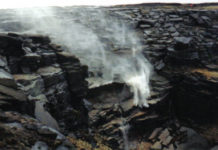Are there actually forces we can feel and control, but which our intelligence cannot yet understand? Today we take a look at a couple of such sensory forces which are believed to be present within us called Extra Sensory Perception or Sixth Sense and Psychokinesis or Telekinesis. Yes, you must have seen the movie ‘The Sixth Sense‘ or used the telekinesis skills in the famous video game ‘Bioshock’. But ever imagined to have these skills in real life? The belief of their existence would have been much easier if we had totally understood how our brain works. But since we don’t completely know about our brains, their existence are still a debatable topic among scientists and believers.
Extra Sensory Perception (ESP) and Psychokinesis (PK) are the two powers that govern all self-controlled human mysteries.
ESP is the ability to feel or understand events which are not apparent to the standard five senses, whereas psychokinesis is a natural force which can be used to physically affect the world, without there being any physical contact.
Animals are known to have instincts and senses that are inexplicable
Together, these two talents are known as psychic powers or psi, and many researchers believe they are inherent in us all. Other scientists think they are nothing but bunkum, hoaxes or magic tricks which have never been proven in controlled laboratory conditions.
The subject of ESP has been around for centuries under the guise of telepathy and clairvoyance, and there is some substance behind the possibility of its existence. Animals are known to have instincts and senses that are inexplicable if we rely purely on the five established receptors.
For example, trained dogs can feel when an epileptic person will have a fit, and can give the sufferer enough of a warning for medication and safety precautions to be taken.
Advocates of human ESP suggest we have similar powers ingrained with natural instincts, but our modern, comfortable lifestyles have allowed them to become dormant and unused. The first scientifically tested experiments to investigate the subject of ESP were conducted by Joseph Banks Rhine in the 1930s.
Rhine was a scientist at Duke University in Durham, USA, and developed the now archetypal ESP-testing, card guessing game. Rhine would ask the subjects in his experiments which one of five cards he was holding – it would either show a circle, a square, a plus sign, a star or three wavy lines. The pack would contain 25 cards, and the success rate of the subject compared to the pure statistics of probability gave a reading of whether some external, unknown sense was at play. Rhine concluded that ESP was a genuine phenomenon that could be effected by the human involved in the experiment.
stressful or traumatic scenarios are believed to encourage much more receptivity to instinctive senses.
He discovered that if people were relaxed and comfortable, their success rate would improve but if those being tested were bored, scared or simply disliked the notion of ESP, their results would actually be worse than probability. Character and situation are said to have great bearing on individual ESP sensitivity.
Particularly stressful or traumatic scenarios are believed to encourage much more receptivity to instinctive senses. Those who call themselves psychics are said to be naturally in tune with their inherent powers, and can feel unexplained sensations as easily as normal people receive the known five. These psychics are often the brunt of scientists’ most fierce scepticism.
..there is no known force or sense that can be received or manipulated by the brain.
Many researchers, who utterly disbelieve the notion of psi, point to the long history of so-called psychics being revealed as charlatans, con men or illusionists. Similarly, they question every aspect of the controlled experiments used to prove the existence of ESP and point to the fact that successful tests are often unrepeatable.
Some scientists are eager to state that there is no known force or sense that can be received or manipulated by the brain. If there are such things as brainwaves, then why can we not build a machine to receive them? It must also be highlighted that ESP tests can be proven successful just by pure luck playing a part, whereas psychokinesis experiments are far less susceptible to chance. Either people involved in psychokinesis experiments can make things move psychically or not, and any positive result would be a sensation.
Needless to say, the lack of public understanding of psychokinetic energy is due to the very fact there have not been any substantially successful tests, and that the proof we do have of its existence comes purely from anecdotal evidence.
That said, the phenomenon of poltergeists is well documented – if not laboratory tested – and is believed to contain a great deal of psychokinetic influence.
Certainly, many traditional biologists and physicists would refute the existence of any forces that are not explained by known science and when such powers are reinforced by dubious evidence, their credibility is questioned further.
However, the public perception of psi ability is quite different, and recent surveys have shown that two-thirds of American adults believe they have experienced some occurrence of ESP. In many ways, the subject is akin to the question of God, or the human soul.
-end-




































